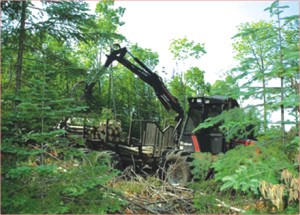Feature
The Impending Environmental Catastrophe
Tanvir Manzoor Hussain
It is a matter of great shame for us that as educated citizens of this planet many of us are continually failing to act responsibly and sensibly towards the environment, which is being altered beyond recognition by humans all over the world today. Our negligence regarding this vital issue could ultimately lead to disastrous long-term consequences, bringing into question the very continuity of that which defines Earth life.
 Archaeologists believe that even a few thousand years ago, humans were just hunter-gatherers, not much different from other mammals. But since then humans have evolved rapidly to become the most advanced species on earth, and unfortunately also the most destructive. As our numbers have risen, so have our need for more fuel, food and resources and this has led to extensive environmental damage, especially in the last few decades. Archaeologists believe that even a few thousand years ago, humans were just hunter-gatherers, not much different from other mammals. But since then humans have evolved rapidly to become the most advanced species on earth, and unfortunately also the most destructive. As our numbers have risen, so have our need for more fuel, food and resources and this has led to extensive environmental damage, especially in the last few decades.
To feed large populations, forests in many countries have been burnt or felled to clear land for farming, causing the extinction of countless plants and animals. Forests are also chopped down to obtain wood for cooking and building homes. With the disappearance of trees soil is easily washed away by rain, its nutrients getting lost forever. Besides, burning forests releases carbon dioxide into the atmosphere, leading to the 'Greenhouse effect' rising world temperatures, which could melt ice caps and cause widespread flooding all over the world, perhaps even permanently submerging low-lying countries such as Bangladesh.
In fact carbon dioxide isn't the only factor behind the 'Greenhouse effect'. Burning fossil fuels to provide the world's energy, use of products containing CFC gases, car exhaust fumes, burning of wastes in incinerators, and toxic chemicals released by factories all contribute to heat up the atmosphere. Harmful gases also lead to 'acid rain' rain that can kill vegetation and poison aquatic species. Water pollution is further aggravated by the release of factory waste and sewage into rivers, contaminating people's drinking water.
Sometimes it is difficult to fathom the true extent of our actions. It's quite unbelievable that in just the last sixty years, about half of the world's rainforests have been cut down, irrevocably. On top of that, each year another 120,000 square kilometers of tropical forests are being cleared worldwide an area almost equivalent to the size of Bangladesh. Also, since 1950, world oil consumption has increased fifteen-fold, which means that currently oil is being used up about a million times faster than the rate at which new oil is forming under the seas. And that is not all. According to some estimates, globally at least three species of animals and plants are becoming extinct every hour. Annually, this adds up to no less than 27,000 extinctions.
But perhaps we can still save our planet if we act now, unitedly. The first step should be the strengthening of efforts to harness the wonderful potential of the Internet and improved global communications to raise awareness of environmental issues across the world, funded by international organizations and individual governments and organized by volunteers from the general public. Conscious and alert citizens will be better able to pressurize authorities to take long overdue steps such as preventing factories from releasing untreated toxic wastes into the environment; they will also be in a better position to locally monitor the implementation of such regulations, thus reducing the governments' costs.
There is also an urgent need for proper recycling centers in the rapidly expanding urban areas of developing countries like Bangladesh, which would eliminate the need for burning or dumping used glass, cans and paper. It is often not realized that waste paper can be recycled at least four to five times; that recycled cans can provide metals using twenty-times less energy compared to the process of extracting new metals; that it is relatively cheap and simple to melt used glass and mold them into new containers.
Transportation systems and city-plans should also be upgraded, aimed at reducing average travel distances and thus creating the opportunity for people to use environment-friendly vehicles such as bicycles instead cars and trains. The improvement of buses and setting up of trams or subways would also reduce congestion, noise and air pollution. Expansion of the use of renewable energy sources such as solar and wind power could further reduce pressures on our forests, wildlife, and our very own survival prospects.
This world belongs to us and it's our only home, therefore it's our duty and responsibility to protect it. Find out what simple things you can do to play your part, and tell others to do the same. Do you write on both sides of a paper?
| 